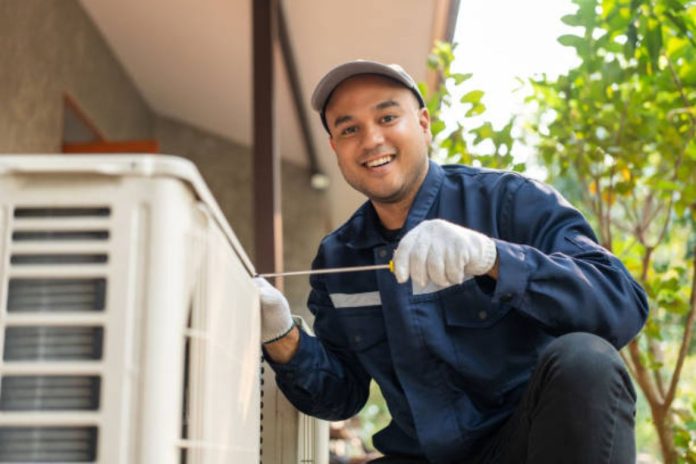From central AC systems to heat pumps, when the time comes to install a new air conditioner, you have a few different options. If you’re not an expert in cooling systems, all of these choices can feel overwhelming.
Read the rest of this article to learn more about each type of AC system and how to choose the best one for your home.
Central Air Conditioners
Central air conditioners are the most common type of whole-house cooling system. They work by pumping cool air through a network of ducts that reach throughout your entire home.
Pros of Central Air Conditioners
- Cools your entire home efficiently
- Relatively affordable installation costs
- Easy to maintain
Cons of Central Air Conditioners
- Requires existing ductwork, which might not be present in all homes
- Duct systems can leak cool air, reducing efficiency
- May not provide even cooling throughout the entire home
Heat Pumps
Heat pumps are unique systems that can both heat and cool your home, making them a versatile option. In the summer, they act like traditional air conditioners, pulling heat from inside your home and releasing it outdoors. In the winter, they reverse the process, extracting heat from the outside air and pumping it inside to keep you warm.
Pros of Heat Pumps
- Efficient heating and cooling in one system
- Can potentially lower your overall energy costs
- Environmentally friendly
Cons of Heat Pumps
- Higher initial installation cost than central AC
- Less effective in extremely cold climates
Ductless Mini-Splits
Ductless mini-splits are a good option for homes that lack existing ductwork or those that require zone cooling for specific areas. These systems consist of an outdoor unit and one or more indoor units mounted on walls. Each indoor unit can be controlled independently, allowing for customized comfort in different areas of your home.
Pros of Ductless Mini-Splits
- Doesn’t require ductwork, ideal for existing homes or additions
- Provides targeted cooling for specific areas
- Very quiet operation
Cons of Ductless Mini-Splits
- Higher installation cost than central AC
- Multiple indoor units can be visually obtrusive
- May require professional installation for some models
Geothermal Systems
Geothermal systems tap into the constant temperature of the earth below the surface to heat and cool your home. They utilize a network of underground pipes to transfer heat in and out of your home.
Pros of Geothermal Systems
- Most energy-efficient heating and cooling system available
- Low operating costs
- Environmentally friendly
Cons of Geothermal Systems
- Highest installation cost of all AC systems
- Requires significant upfront investment
- Not suitable for all geographic locations.








